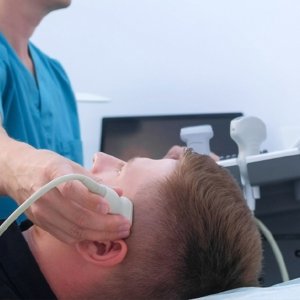Adolescents at Three Times Greater Risk for Cannabis Addiction

As cannabis has become far more potent than in previous years, there is now an undeniable risk for addiction when people use the drug. Critically, young people are at the highest risk for addiction, which could set the stage for several physical health crises, psychological maladies, and other drug use.
What the Findings Show
A new study led by researchers at King’s College in London made an alarming discovery. While adolescents who use cannabis are at no higher risk than adults for depression, anxiety, psychoses, or other mental health ailments commonly associated with cannabis use, adolescents are at significantly higher risk of becoming addicted to cannabis.
“Cannabis addiction is a real issue that teenagers should be aware of, as they appear to be much more vulnerable to it than adults.”
The research was the first of its kind because it sought to clarify the degrees of addiction risk different age groups face when using cannabis. According to the data, adolescents face the highest addiction risk of any cohort. Lead author Dr. Will Lawn spoke to this point. “Cannabis addiction is a real issue that teenagers should be aware of, as they appear to be much more vulnerable to it than adults. …We also replicated previous work that if someone becomes addicted to cannabis, that may increase the severity of subclinical mental health symptoms. Adolescents are also at a greater risk of experiencing mental health difficulties than adults, so they should be proactively discouraged from regular cannabis use.” For many reasons, parents should have conversations with their children to inform them about the harm of cannabis before their children fall into peer pressure scenarios among youths within their social groups.
But how did the researchers arrive at these findings? According to the paper, researchers studied 274 participants who use cannabis one to seven days per week. Within that group, about 76 participants were between 16 and 17, and the average weekly cannabis use was four times per week.

Among the adolescents, the researchers found that this group was more than 3.5 times as likely to exhibit cannabis addiction symptoms, including “…cravings; cannabis use contributing to failures in school or work; heightened tolerance; withdrawal; interpersonal problems caused by or exacerbated by cannabis use; and intending to cut back without success.” The researchers found that 50% of teenage cannabis users in the study exhibited six or more cannabis use disorder symptoms, compared to 9%–22% of the other age groups exhibiting six or more symptoms of cannabis addiction.
The researchers hypothesized many potential reasons why youths might be more at risk for cannabis addiction, from increased disruption to relationships with parents and teachers to a hyper-plastic (malleable) brain, a developing endocannabinoid system (the part of the central nervous system that the THC in cannabis acts upon most significantly), an evolving sense of personal identity, and a shifting social life (which may involve peer pressure).
Cannabis is Not a Harmless Drug
Supporters of cannabis use often point to the fact that cannabis does not produce overdoses or deaths like many other drugs. Such supporters use this line to argue that cannabis is safe for use. However, nothing that is addictive is safe to use, and the new findings highlighting a more-than-3X risk for addiction when young people use cannabis make it all the more clear this drug should be avoided.
Further, cannabis is harmful, purely on physiological and psychological levels. According to the National Institute on Drug Abuse, some of the short-term effects of using cannabis include:
- Altered sense of time
- Alterations within the five senses
- Changes in mood, often leading to harmful reactions
- Impaired body movement, such as loss of coordination
- Difficulty with thinking, problem-solving, and reaction time
- Impaired memory function and retention, both short-term and long-term
- Hallucinations, delusions, and psychosis, usually associated with high cannabis dosages
Some of the long-term effects of cannabis experimentation include the following:
- Cannabis use over time can lead to permanent memory loss.
- Cannabis use in young people can lead to impairments in thinking.
- Using cannabis among adolescents, teens, and young adults can impair brain development.
- Marijuana can also reduce IQ, with no guarantee of IQ returning after one ceases using the drug.
Some of the physical effects of using marijuana include:
- Breathing problems. Marijuana users often struggle with lung infections, daily cough, phlegm, lung illness, and a higher risk for lung cancer, as marijuana affects the lungs much like tobacco does.
- Increased heart rate. Smoking cannabis raises the heart rate up to three hours after smoking, which may increase the chance of a heart attack.
- Intense nausea and vomiting. Marijuana use can lead to Cannabinoid Hyperemesis Syndrome, which is a condition that causes users to experience regular cycles of severe nausea, vomiting, and dehydration. The condition can get so bad that some users may require emergency medical attention.
The above is not the full extent of harm one can experience from smoking cannabis. However, it is worth mentioning that risk factors for all the above harms increase considerably when one develops an addiction to the drug.
What Can Parents Say to Prevent Marijuana Experimentation?

Given the harmful effects of using cannabis and the increased risk of addiction that young Americans face, parents must find ways to educate their children about the harmful effects of cannabis. Parents can open a conversation with their kids about marijuana by asking questions and inviting conversation with lines written by Empowering Parents, an organization that concerned parents formed following Colorado’s legalization of cannabis:
“I’m curious how you got that idea about marijuana?”
“I hear you saying that marijuana isn’t that bad for you because John said it’s legal, but where do you think he’s getting that information?”
“I know a lot of people think that marijuana isn’t as bad for you as alcohol but there’s a bit more to it than that. I think we should talk about it.”
“We expect you not to use any substances because we know how harmful they can be to your health. If something comes up and you need help, we’re here for you no matter what.”
“Marijuana use will affect your memory, your coordination, your ability to focus, and how you make decisions. The best way to maintain control and make decisions is to be clear-headed and not under the influence of marijuana.”
“Okay, so tell me what you know about marijuana.”
Parents should also ask their children open-ended, empathy-focused questions regarding marijuana, using kindness and conversational tones to create a safe space to communicate.
Drug Rehab for Marijuana? Yes. Drug Rehab Treats Marijuana Addiction.
People who use cannabis and who cannot stop using it must get help at qualified residential treatment centers as soon as possible. To date, marijuana is the second most frequently cited drug of choice at treatment center admissions, after alcohol. Millions of Americans struggle with cannabis addiction, and help is available. If you know someone who is using cannabis, please make sure they get help as soon as possible.
Sources:
- JP. “The CannTeen Study: Cannabis use disorder, depression, anxiety, and psychotic-like symptoms in adolescent and adult cannabis users and age-matched controls.” Journal of Psychopharmacology, 2022. journals.sagepub.com
- ScienceDaily. “Adolescents more vulnerable to cannabis addiction but not other mental health risks, study finds.” Science Daily, 2022. sciencedaily.com
- NIDA. “What is marijuana?” National Institute on Drug Abuse, 2019. nida.nih.gov
- EP. “How to Talk to Your Child About Marijuana: 4 Responses for Parents.” Empowering Parents, 2023. empoweringparents.com


 ®
®